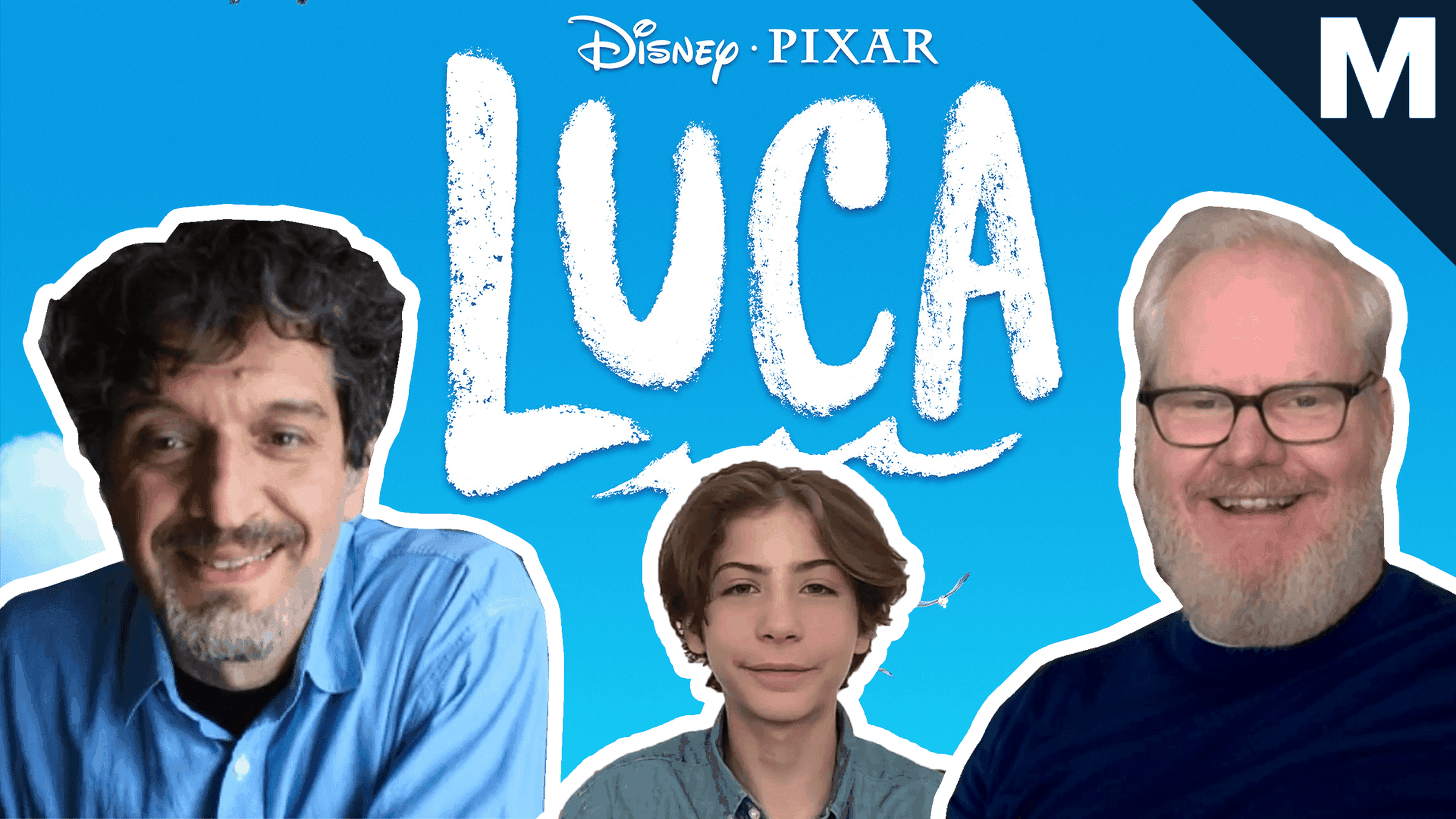
By Pixar standards, Luca is a teeny-tiny film. It’s not grasping at the purpose of life or the point of emotions; it’s not delving into the Great Before or the Great Beyond; it’s not even expanding an existing universe or creating a whole new one.
The emotions it inspires seem relatively modest, too — more warm fuzzies than the full-body sobs the studio has become famous for provoking in grown-ups. It’s just the story of some kid enjoying the summer while trying to hide the fact that he’s a sea monster. And he’s not even a particularly fabled or ferocious sea monster at that.
But it would be a mistake to dismiss Luca as a minor effort, or one less worthy of consideration than its more overtly ambitious brethren. Its smallness turns out not a curse but a blessing, allowing the film to cast the gentle but enduring glow of a cherished memory. It’s a rare late-Pixar film that feels equally geared toward children and their parents, and it might be Pixar’s most purely endearing movie in years.
‘Luca’ is a simple pleasure, and one sure to make you smile.
Luca (voiced by Jacob Tremblay) is a young teenager who, like his corporate cousin Ariel before him, has lived his whole life underwater but pines for the forbidden allure of the surface world. When he does finally make it up, however, the first creature he encounters is not one of the “land monsters” his overprotective parents warned him about, but another sea monster: Alberto (voiced by Jack Dylan Grazer), a brash older boy who teaches him about human concepts like walking and gravity.
Both boys transform from scaly blue sea creatures when wet — imagine if the fish man from Shape of Water tried out the Instagram cartoon filter, and you’ve got the gist — into ordinary-looking humans when dry. So off they go into the sleepy coastal town of Portorosso, which is notorious for its hatred of sea monsters but also locally famous for an annual “Italian triathlon” (i.e., swimming, biking, and eating pasta) that offers enough prize money to buy the boys the scooter of their dreams.

Just like a trip to Cinque Terre.
Image: Disney / PIXAR
Portorosso (the name a nod to Hayao Miyazaki’s Porco Rosso, underlining Luca‘s status as one of Pixar’s Ghibliest films) is a treasure in its own right. Though the story begins in the unfamiliar depths of the sea, it’s the land that Luca is wowed by, and director Enrico Casarosa and his team create a surface world that’s worthy of his wonder. Portorosso may be a humble village, but director Enrico Casarosa and his team relish in the quiet beauty of its textured stone streets and sun-bleached walls, in the dazzle of light reflecting off its water, in the pleasant hum of townsfolk playing checkers or soccer in the piazza.
Luca and Alberto, for their part, tear through its alleys with unfettered glee and sometimes even with sheer fantastical whimsy, as when Luca imagines diving into skies of shimmering fish or zipping through fields of free-range Vespas. (If you didn’t already know Casarosa was the guy who made the utterly gorgeous La Luna, sequences like these are dead giveaways.) It’s a shame Luca isn’t getting a wide release in theaters, as it was originally planned to be; a vision this vivid and detailed deserves to be savored on a big screen.
In Portorosso, Luca and Alberto befriend a local girl named Giulia (Emma Berman), forming a trio of underdogs to take down the ultimate overdog — last year’s triathlon winner, a preening jerk named Ercole (Saverio Raimondo). And that’s about it, as far as plot goes. Luca is less interested in big twists than in the ever-shifting dynamics between the three leads; while the film never ventures beyond the purely platonic, it’s hard not to read queer subtext into the boys’ intense bond, or Alberto’s resentment of Giulia, or the constant fear of being outed (as sea monsters) in front of angry townsfolk.

The cutest sea monsters you’ll ever meet.
Image: Disney / PIXAR
In Luca, we get the arc of a self-described “good kid” who gets a much-needed lesson in moving past the protective shelter of his well-meaning but clueless parents (Maya Rudolph and Jim Gaffigan) and toward the life he really wants. It’s a journey that’ll feel touchingly familiar to countless youngsters undergoing the same process right now, or adults who once did, and it’s key to Luca‘s accessible magic.
But the film’s most compelling character is Alberto. He cuts a striking figure with his proud posture and know-it-all attitude — he’s the kind of boy who’ll just make stuff up if he doesn’t know the answer to a question, and whose made-up answers will invariably prove to be far more interesting than the real answer ever could have been — but Grazer shades his performance with just enough insecurity to suggest a more complicated personality under all that bravado. Where Luca is the child who’s obviously gonna be okay, Alberto is the one we need to know will be.
Maybe that softness leads to a film that ends up even gentler than it needs to be; if Luca makes a misstep, it’s with a climax that can’t seem to bear to play out some of its bigger threats or see through some of its thornier metaphors. But it’s hard to get too broken up about it. Perfect summers are hard enough to come by as it is, whether you’re a kid trying to make the most of your time off school or an adult daydreaming of a weekend getaway. Luca delivers a slice of one so rich and sweet, you’ll practically taste the gelato on your lips for hours afterward. It’s a simple pleasure, and one sure to make you smile.
